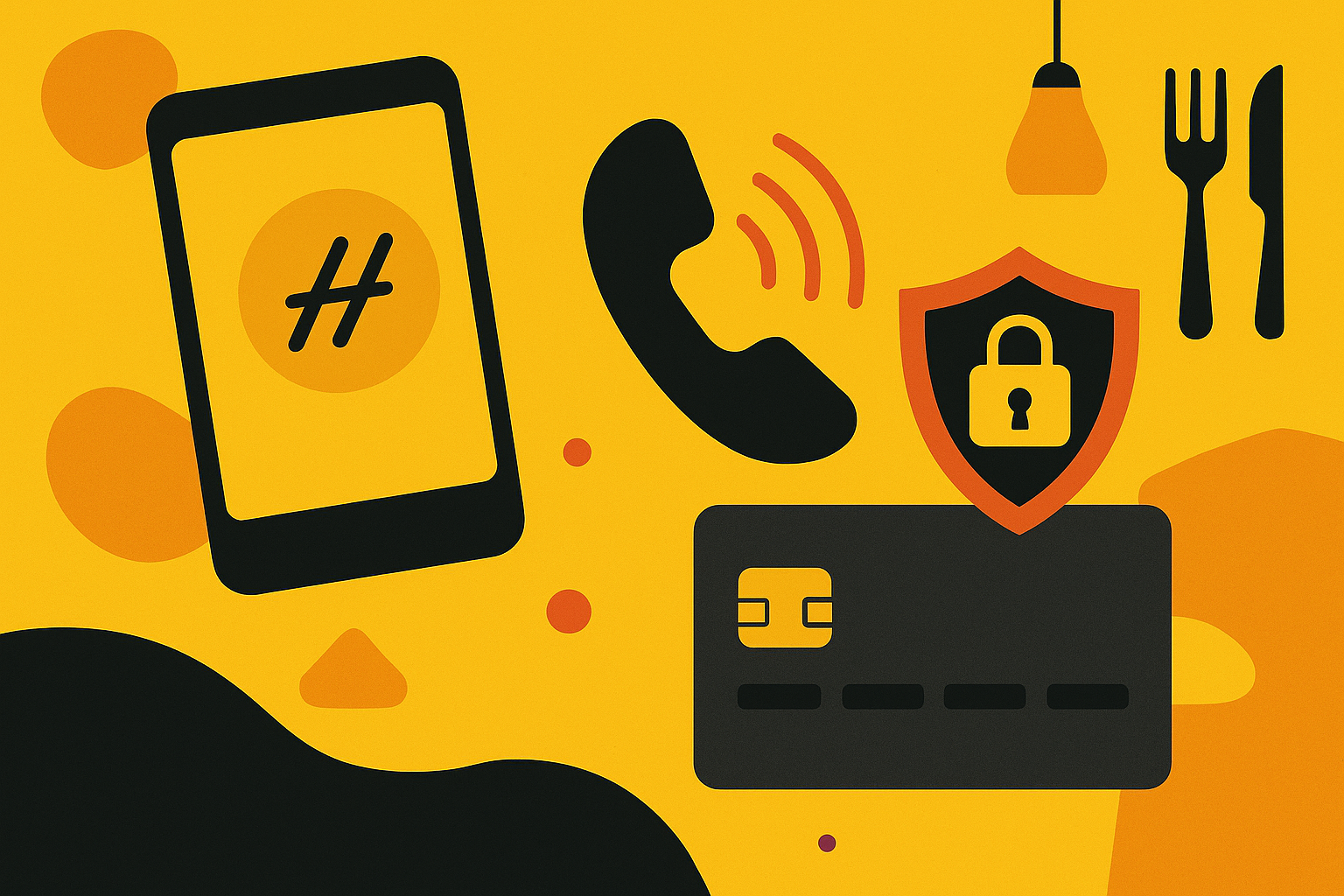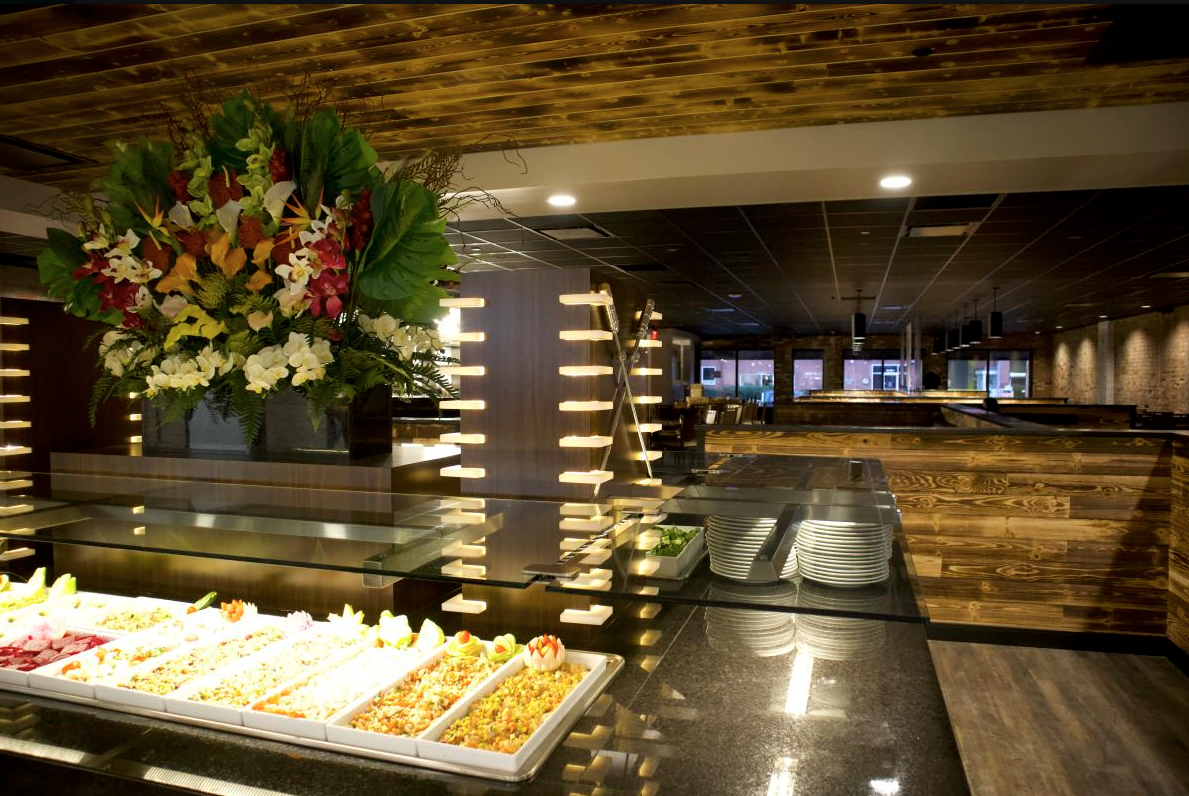
Picture this: a guest calls your restaurant at 7 PM on a Friday night, ready to place a $150 takeout order for their family. Your AI phone agent handles the conversation beautifully, takes their order, and then... asks for their credit card number over the phone. But here's the million-dollar question: is that transaction actually secure?
With 70% of restaurant transactions now made via cards, ensuring PCI compliance isn't just a nice-to-have—it's absolutely critical (Lavu). The release of PCI DSS 4.0 in 2024 introduced stricter requirements like stronger encryption and mandatory multi-factor authentication for restaurants (Lavu). And with data breaches costing $3.9M on average, and 28% of breaches targeting small businesses like restaurants, the stakes have never been higher (Lavu).
For restaurant owners considering AI phone agents, understanding PCI compliance isn't just about avoiding fines—it's about protecting your guests' trust and your business's reputation. Non-compliance with PCI standards can lead to fines of up to $100,000 per month, legal issues, and a significant loss of customer trust (Lavu). This comprehensive guide will walk you through everything you need to know about PCI compliance for AI phone agents, including what questions to ask vendors and how to ensure your voice-based payment processing meets the latest security standards.
PCI DSS 4.0 is the latest version of the Payment Card Industry Data Security Standard, introduced to keep pace with the rapid evolution of e-commerce, mobile payments, and sophisticated cyberattacks (HeroDevs). For restaurants using AI phone agents to process payments, this means navigating a complex web of security requirements that go far beyond simple encryption.
PCI DSS compliance is mandatory for businesses that process, store, or transmit payment card data (HeroDevs). This includes any restaurant that accepts credit card payments over the phone, whether through human staff or AI agents.
The framework consists of 12 core requirements that every compliant system must meet (HeroDevs):
For AI phone agents specifically, requirements 3, 4, 7, 8, and 10 are particularly critical, as they govern how payment data is handled, transmitted, and monitored during voice interactions.
When guests provide credit card information over the phone, several unique security challenges emerge that don't exist in traditional online payment processing:
Unlike web forms where data can be immediately tokenized, voice interactions create audio recordings that may contain sensitive payment information. These recordings must be handled with the same level of security as written cardholder data.
AI phone agents need to process payment information in real-time while maintaining conversation flow. This creates technical challenges around secure data handling without introducing awkward pauses or system failures.
Secure voice payment processing requires seamless integration between AI conversation systems, payment processors, and POS systems—all while maintaining PCI compliance at every touchpoint.
Tokenization is the process of replacing sensitive payment data with non-sensitive tokens that can be safely stored and transmitted. For AI phone agents, this technology is absolutely essential (HostedPCI).
HostedPCI's omnichannel platform includes payment tokenization and multi-gateway orchestration, offering PCI Level 1 Compliant solutions with over 100 gateway integrations (HostedPCI). This type of enterprise-grade solution is exactly what restaurants need when implementing voice-based payment processing.
Hostie AI has been designed from the ground up with security and compliance in mind. As an AI-driven customer experience platform tailored for the restaurant industry, Hostie automates handling calls, texts, and emails, and manages reservations and takeout orders while maintaining the highest security standards (Hostie Features).
Seamless Integration with Secure Payment Systems
Hostie integrates with major platforms across reservations, POS, ordering, and guest management including OpenTable, Resy, Toast, Square, and more (Hostie Features). These integrations are built with security-first principles, ensuring that payment data flows through established, PCI-compliant channels.
Natural Conversation Flow
Hostie is built to feel natural and intuitive—guests don't have to press buttons or "talk to a robot," they just speak normally, and Hostie takes care of the rest (Hostie Features). This natural interaction reduces the likelihood of guests repeating sensitive information or becoming frustrated during the payment process.
Unlimited Concurrent Processing
Hostie can handle unlimited calls at once (Hostie Features), ensuring that security protocols don't create bottlenecks during busy periods when multiple guests are placing orders simultaneously.
Full Transparency and Monitoring
Hostie offers full transparency and visibility with easy-to-access call transcripts (Hostie Features). This audit trail is crucial for PCI compliance, as requirement 10 mandates logging and monitoring all access to system components and cardholder data.
| Security Aspect | DIY IVR Systems | Professional AI Solutions (like Hostie) |
|---|---|---|
| Data Encryption | Often basic or inconsistent | End-to-end encryption with industry standards |
| Tokenization | Rarely implemented | Built-in tokenization with secure vaults |
| Audit Trails | Limited or manual logging | Comprehensive automated logging and monitoring |
| PCI Compliance | Self-assessed, often incomplete | Professional compliance management and certification |
| Integration Security | Point-to-point vulnerabilities | Secure API connections with established partners |
| Update Management | Manual, often delayed | Automatic security updates and patches |
| Incident Response | DIY troubleshooting | Professional support and incident management |
| Scalability | Performance degrades under load | Designed for high-volume, concurrent processing |
While building your own IVR system might seem cost-effective initially, the hidden costs of achieving and maintaining PCI compliance can be substantial:
Before selecting an AI phone agent solution, ask these critical questions:
The best approach to protecting payment data is to minimize exposure. Identity tokenization can improve customer service while respecting data privacy (Prove). With 70% of Fortune 100 companies using phone numbers as a primary customer identifier, but 50% of identity records carrying stale or missing phone numbers, proper tokenization becomes even more critical (Prove).
PCI DSS 4.0 requires a defense-in-depth approach. This means implementing security controls at multiple levels:
Requirement 11 of PCI DSS 4.0 mandates regular testing of security systems and networks (HeroDevs). This includes:
Human error remains one of the biggest security risks. Regular training ensures that staff understand their role in maintaining PCI compliance and can recognize potential security threats.
The financial impact of a data breach extends far beyond immediate costs. Consider these factors:
Restaurants that can confidently handle phone orders with secure payment processing gain a significant competitive advantage. Guests increasingly expect seamless, secure experiences across all touchpoints.
PCI-compliant AI phone agents like Hostie can process unlimited concurrent calls while maintaining security standards (Hostie Features). This scalability ensures that security doesn't become a bottleneck during peak ordering periods.
In an era where data breaches make headlines regularly, demonstrating a commitment to payment security builds customer trust and loyalty. Guests are more likely to provide payment information when they feel confident it's being handled securely.
Hostie offers three different plans designed to meet various restaurant needs while maintaining security standards across all tiers:
All plans include the core security features necessary for PCI compliance, ensuring that even smaller restaurants can access enterprise-grade payment security. Hostie works with any phone system and can replace your system entirely, while allowing you to keep your existing phone number (Hostie Features).
The platform supports 20 different languages and offers always-on support (Hostie Features), ensuring that security and compliance support is available whenever you need it. As a company founded by restaurant people, Hostie understands the unique challenges and requirements of the restaurant industry (Hostie FAQ).
PCI DSS standards continue to evolve as new threats emerge and technology advances. Working with a professional solution provider ensures that your systems stay current with the latest requirements without requiring constant attention from your team.
As AI and machine learning technologies advance, new security considerations will emerge. Professional solutions like Hostie are designed to adapt to these changes while maintaining compliance and security standards.
As your restaurant grows, your payment processing needs will evolve. Choose solutions that can scale with your business while maintaining security standards. Hostie's ability to handle unlimited concurrent calls ensures that growth doesn't compromise security (Hostie Features).
PCI compliance for AI phone agents isn't just a technical requirement—it's a fundamental business necessity that protects your guests, your reputation, and your bottom line. With the introduction of PCI DSS 4.0 and its stricter requirements, restaurants can no longer afford to treat payment security as an afterthought (HeroDevs).
The choice between DIY solutions and professional platforms like Hostie comes down to more than just cost—it's about risk management, operational efficiency, and customer trust. While DIY IVR systems might seem appealing initially, the hidden costs of achieving and maintaining PCI compliance often make professional solutions more cost-effective in the long run.
Hostie's comprehensive approach to security, combined with its restaurant-specific expertise and seamless integrations, provides a compelling solution for restaurants looking to implement secure voice-based payment processing (Hostie Features). With transparent pricing, multilingual support, and always-on assistance, Hostie removes the complexity from PCI compliance while delivering the natural, intuitive experience that guests expect.
As the restaurant industry continues to evolve and digital ordering becomes increasingly important, ensuring that your AI phone agent is PCI-compliant isn't just about meeting current requirements—it's about building a foundation for sustainable growth and customer trust. The question isn't whether you can afford to implement proper security measures, but whether you can afford not to.
💡 Ready to see Hostie in action?
Don't miss another reservation or guest call.
👉 Book a demo with Hostie today
PCI DSS 4.0 introduces stricter requirements including stronger encryption, mandatory multi-factor authentication, and enhanced network security controls. AI phone agents must implement secure payment tokenization, maintain PCI Level 1 compliance, and ensure all cardholder data transmission is encrypted. The 12 core requirements cover network security, secure configurations, data protection, access controls, and regular security testing.
Payment tokenization replaces sensitive card data with unique tokens during voice transactions. When customers provide card details to AI phone agents, the data is immediately tokenized and transmitted through secure servers to PCI-compliant payment vaults. This reduces PCI scope for restaurants while maintaining security, as the actual card numbers are never stored in the restaurant's systems.
Non-compliance with PCI standards can result in fines up to $100,000 per month, legal issues, and significant loss of customer trust. Data breaches cost an average of $3.9 million, and 28% of breaches specifically target small businesses like restaurants. With 70% of restaurant transactions now made via cards, compliance is critical for avoiding these costly consequences.
Modern AI phone agents can be configured for PCI compliance through proper integration with certified payment processors and tokenization services. Solutions should include enterprise-grade PCI compliance features, omnichannel payment platforms, and multi-gateway orchestration. The key is ensuring the AI system never stores actual card data and uses secure transmission methods for all payment information.
Restaurants should implement end-to-end encryption, secure payment tokenization, multi-factor authentication, and regular security testing. All systems handling card data must maintain PCI Level 1 compliance with proper network security controls. Additionally, staff should be trained on PCI requirements, and the restaurant should have documented security policies and incident response procedures.
PCI DSS 4.0 requires regular security testing and monitoring of all systems handling cardholder data. Restaurants should conduct quarterly vulnerability scans, annual penetration testing, and continuous monitoring of their AI phone agent systems. Any changes to the payment processing setup should trigger a compliance review to ensure ongoing adherence to PCI standards.
RELATED


